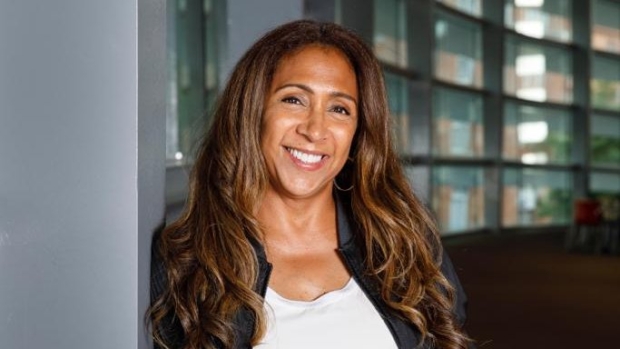Inclusive Audiences –

(© Ellie Kurttz)
She explains her new initiative, Inclusive Audiences, to us now:
I set up Inclusive Audiences because I truly believe that the industry needs to create real and lasting change with their audience development and outreach campaigns. I see wonderful initiatives being launched by some venues, particularly off-West End and local theatres who are generally more invested in cultivating an audience. But for the West End and bigger organisations, audience development often means setting aside a number of “cheap seats”, invariably poorly located in the theatre to be sold at £10 or £15.
In reality what then happens is that seasoned theatre fans cotton on to said scheme and snap up a bargain. They were planning to go anyway so not only is the audience not developed, the box office has potentially lost revenue…I know because I’ve done it myself!
A recent ACE survey revealed that 93 per cent of theatre audiences are white or remain white – because that hasn’t really changed over the past three decades when I first started working in the industry. London’s population is almost 50 per cent Global Majority so that’s a particularly worrying statistic. If we don’t nurture new audiences, the long-term effect of not having an inclusion strategy is surely catastrophic for the box office and the industry in general. We have to look to the gatekeepers; the producers and the venues who are prepared to invest in genuine audience outreach and development and that means grunt work! Contacting the schools that aren’t usually on school databases because they cater for excluded kids or are in deprived areas. It means approaching charities that work with young people who fall off the radar because they’ve had experience of the criminal justice system? It involves phoning up youth theatres, local authorities and community groups,
Live theatre can be truly life-changing and if we care about its future we should do all we can to spread the love far and wide. Inclusive audiences will undoubtedly lead to a more representative workforce too. A desire to work in theatre usually sparks from a visit to the theatre and so if we want more diverse lighting designers, stage managers, front of house staff etc we have to encourage those people across the threshold in the first place.
Recently Sonia Friedman Productions staged a special Education Performance of To Kill A Mockingbird to which I invited London state-school pupils, particularly those in the boroughs of Barking & Dagenham, Brent, Croydon, Enfield and Newham as they are the five boroughs identified by Arts Council England as “Priority Places” in need of levelling-up when it comes to arts and culture.
We had over 600 pupils book seats at just £10 per ticket and the atmosphere was electric! The feedback was even better – “It was so special to see our boys so enthusiastic and inspired . We are really keen to get as many of our children experiencing theatre as possible.” “We all know that theatre needs to be more accessible to all members of society, and we know the impact that this version of storytelling can have and it’s so important for the younger generation to see and form their opinions on issues such as those raised in the play”.
The thoughts were echoed by producer Sonia Friedman, who said: “Sita’s work has been integral to the success of To Kill a Mockingbird in the West End. From the outset, our intention was to welcome as wide an audience as possible, ensuring that this vitally important story remained accessible to everyone, despite exceptional demand leading to sold- out houses. She has brought a fresh perspective, spearheading the production’s push to reach above and beyond the habitual West End theatregoer, challenging existing practices and cultivating relationships moving forwards. Her considered work has ensured that the vital conservations around this production include every voice.”
I’ve also attended similar Education performances at Hamilton and I’m convinced that this is a fantastic way to introduce young people to theatre. The reactions were genuine and authentic and it was heart-warming to sit and the back and feel the ripples of excitements, tension and glee throughout the performance. At times you could hear a pin drop such was the awe. It’s also really important that young adults can relax and enjoy that environment without someone shushing them or making them feel uncomfortable/excluded. Interestingly I didn’t see or hear ONE pupil on their phone which is more that I can say in a regular theatre performance.
The experience was repeated with the open-air production of Antigone, whose star Zainab Hassan said: ” As a working class South Asian woman, it was so important that we did the work to get in diverse audiences. It is not enough that theatres programme diverse work. It doesn’t stop there. Regular patrons should absolutely come see this work but it was important that we brought in new audiences as well. Working class, immigrant communities, marginalised people, young people, people from the global majority. Much of the cast from Antigone reflected these demographics.”
I truly hope that my on-going work will result in more education performances, more diverse audiences and ultimately a lifetime love of live theatre. As one teacher said after bringing a group to TKAM, “For lots of our kids it was their first time at the theatre – they were stunned and want to go monthly now!” That’s true audience development!












